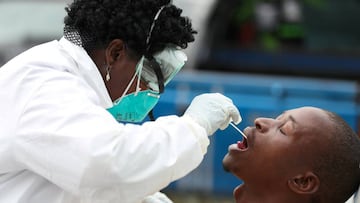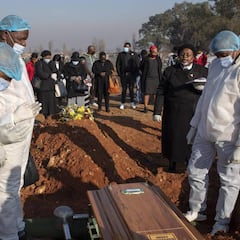WHO sends experts to help South Africa in its battle with Covid-19
The World Health Organization has sent some of its experts on a mission to aid the worst-hit African nation in the coronavirus pandemic.

The World Health Organization (WHO) has deployed a team of 43 experts to South Africa to help the badly-hit country's Covid-19 response team curb the unstoppable rise in daily cases.
The WHO team, with different areas of expertise including epidemiology, surveillance, prevention, control, and health education, will initially monitor the South African health department's work, before concentrating their efforts on helping the worst-affected areas of the country such as Eastern Cape, Free State, Gauteng, Kwazulu Natal, and Mpumalanga.
Follow all the latest coronavirus-related news in Africa on our dedicated live blog
The surge team will be jointly led by Dr. Matshidiso Moeti, WHO Regional Director for Africa, and Dr. Michael Ryan, Executive Director of the WHO Health Emergencies Program. Moeti and Ryan will be connected virtually from Brazzaville, Republic of the Congo, and Geneva, Switzerland, respectively, as they support the experts and facilitate their mission.
Highest caseload in Africa and the fifth globally
Related stories
Occupying fifth place globally among the worst-impacted countries in the Covid-19 crisis, South Africa has reported more than 530,000 Covid-19 confirmed cases so far, with over 9,200 people dying due to the disease.
Health authorities in South Africa had earlier predicted that a peak in Covid-19 infections would come in August in most of the country's provinces, but Health Minister Dr. Zwelini Mkhize has since said: "Cases in Gauteng, Western Cape, and Eastern Cape have slowed but it’s too early to determine if the cases have peaked".

